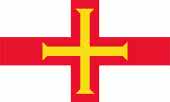Company Incorporation
The principal Corporate Legislation is the Guernsey Companies Law, 1908 and 1990. Under this legislation it is possible to incorporate only private or public companies. Depending on taxation status, all companies are divided into resident and non-resident (exempt) companies.
The type of company used for international trade and investment is the Exempt Company. Companies which are incorporated in Guernsey but which are owned by non-residents of Guernsey and do not do business with Guernsey-resident individuals or corporations, can be granted exempt status in Guernsey. A Guernsey Company has all the powers of a natural person. The language of legislation and Corporate documentation is English. There are no specific statutory provisions governing secrecy in relation to companies, but English Law, which applies to the jurisdiction, imposes a common law duty on professionals to keep the affairs of their clients confidential.
Companies are subject to the following restrictions on trading and business activity: a Guernsey Exempt Company is not allowed to trade within Guernsey or conduct any activity associated with the banking, finance and insurance sectors.
Incorporation procedure involves submission of the Memorandum and Articles of Association to the Financial Services Department. The Registered Office should be informed of directors’ and shareholders’ personal details, and character references for the beneficial owners should be provided, also a full description of the proposed company’s trading and/or investment activities.
A Registered office must be maintained in Guernsey. Off-the-shelf companies are not available due to the requirement to disclose beneficial ownership and trading activities.
Company names are subject to the following requirements:
Names must be approved by making a formal request to the Financial Services Commission.
- The name of a Guernsey-registered company can be in any language that uses the Latin alphabet.
- A name similar or identical to that of an existing company or registered entity is unacceptable.
- Names of well-known multinational companies are unacceptable without prior written consent.
- Names that imply illegal activities are not permitted.
- Names that imply royal or government patronage, either local or foreign, are not permitted.
- The following names and their derivatives: Guernsey, Bank, Building Society, Savings, Loans, Insurance, Assurance, Reinsurance, Chamber of Commerce, Council, Co-operative, Trust, Trustees, Finance, International or their foreign language equivalents require consent or a license.
- Names of Companies with limited liability must have the suffix Limited or Ltd., or the French equivalent Societe avec Responsabilite Limitee or SARL.
A minimum of one director is required, and corporate directors are permitted. There is no requirement to have resident directors. A Company Secretary is required who can be a natural person or body corporate, can be of any nationality and need not be resident in Guernsey. The minimum number of shareholders is two. Corporate shareholders are permitted. Details on the beneficial owner of the company must be forwarded to the Guernsey authorities, but secrecy provisions protect this information. A share register must be maintained at the registered office address of the company. Details of shareholders and directors are maintained on the public files at the Companies Registry, but anonymity can be preserved by the use of nominee shareholders or third party directors.
The normal authorised share capital is GBP 10,000 (or the foreign currency equivalent), although the minimum authorised capital may be a nominal GBP 2, normally with two shares of GBP 1, or the foreign currency equivalent. All shares issued must be paid in full in cash.
The following classes of shares are permitted: registered shares, preference shares, redeemable shares, non-redeemable share and shares with or without voting rights. Bearer shares are not permitted.
Annual Taxation and Fees
Guernsey exempt companies pay no taxes in Guernsey, but are subject to a flat rate corporate duty of GBP 600 per annum irrespective of profit.
Guernsey has signed double taxation agreements, which provide for exchange of information with Jersey and the UK.
Financial statements are subject to the following requirements:
The annual return gives details of the current directors and shareholders and any change in the shareholders since the last return. The return must be filed at the public registry in January of each year, and a filing fee of GBP 100 is payable. If a company fails to file its annual return on the due date, it must pay a penalty.
The authorities in Guernsey expect a new company law to be introduced in 2008 under which normal companies will pay no tax, and companies regulated by the Financial Services Commission will pay 10% tax.
Economy and Infrastructure
The financial services sector provides Guernsey’s main source of income, and tourism has always been a very important aspect of the Island’s economy. There are various other less significant sources of income, including agriculture and fishing.
Air services from Guernsey are excellent, with services to London being particularly frequent. There are also flights to many European centres, including Paris and Amsterdam. Guernsey, like Jersey, relies on sea transport for the importation of the majority of goods. The Channel Islands boast an excellent telecommunications system, as they use the UK digital network.
The Channel Islands are in a very favourable situation owing to the proximity of both the UK and the Continent, and although legislation on Free Trade adopted by the European Community applies to the Island, the politics of taxation planning does not affect Guernsey. The currency is the Great Britain Pound (GBP), and there is no exchange control.
